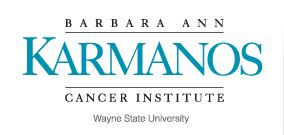Vorinostat in Treating Patients With Locally Advanced, Recurrent, or Metastatic Adenoid Cystic Carcinoma
| Status: | Completed |
|---|---|
| Conditions: | Cancer, Cancer |
| Therapuetic Areas: | Oncology |
| Healthy: | No |
| Age Range: | 18 - Any |
| Updated: | 9/13/2018 |
| Start Date: | August 6, 2010 |
| End Date: | June 8, 2018 |
A Phase 2 Study of Suberoylanilide Hydroxamic Acid (SAHA) in Subjects With Locally Advanced, Recurrent or Metastatic Adenoid Cystic Carcinoma (ACC)
This phase II trial studies how well vorinostat works in treating patients with adenoid
cystic carcinoma that has come back (recurrent) or that has spread from where it started to
nearby tissue or lymph nodes (locally advanced) or has spread to other places in the body
(metastatic). Vorinostat may stop the growth of tumor cells by blocking some of the enzymes
needed for cell growth.
cystic carcinoma that has come back (recurrent) or that has spread from where it started to
nearby tissue or lymph nodes (locally advanced) or has spread to other places in the body
(metastatic). Vorinostat may stop the growth of tumor cells by blocking some of the enzymes
needed for cell growth.
PRIMARY OBJECTIVES:
I. To evaluate the efficacy by means of response rate (based on Response Evaluation Criteria
in Solid Tumors [RECIST] 1.1 criteria) of vorinostat in the treatment of patients with
locally advanced, recurrent or metastatic adenoid cystic carcinoma (ACC).
SECONDARY OBJECTIVES:
I. To characterize the safety and tolerability of vorinostat in this patient population.
II. To assess the time to tumor response (TTR). III. To assess the response duration (RD).
IV. To evaluate progression free survival (PFS). V. To assess overall survival (OS).
TERTIARY OBJECTIVES:
I. To assess the association between a metabolic response by positron emission tomography
(PET)/computed tomography (CT) after one cycle of chemotherapy and subsequent best tumor
response according to standard anatomic response evaluation criteria (RECIST).
II. To assess the association between a metabolic response by PET/CT after the first and
second chemotherapy cycle and PFS.
III. To assess flow sort diploid, aneuploid, and tetraploid populations of tumor cells from
formalin fixed, paraffin-embedded (FFPE) tissue blocks from patients who benefited from
suberoylanilide hydroxamic acid (SAHA) therapy and from patients who did not demonstrate a
durable benefit.
IV. Profile the genomes of each cell population using oligonucleotide comparative genomic
hybridization (CGH) arrays.
V. Perform whole exome analysis of the sorted tumor population and matching germ line sample
for each of the patients selected.
VI. To assess stable disease duration (SDD). VII. To assess the association between response
to vorinostat treatment and RAD23 homolog B (HR23B) on tumor paraffin blocks.
VIII. Retrospectively compare volumetric density (viable tumor volume = VTV) with
pre-determined RECIST of target lesions in cross sectioning imaging (CT/magnetic resonance
[MR]) already obtained.
IX. Correlate VTV, RECIST and treatment response (partial response, stable disease,
progressive disease and stable disease over 6 months).
OUTLINE:
Patients receive vorinostat orally (PO) once daily (QD) on days 1-28. Courses repeat every 28
days in the absence of disease progression or unacceptable toxicity.
After completion of study therapy, patients are followed up for 180 days.
I. To evaluate the efficacy by means of response rate (based on Response Evaluation Criteria
in Solid Tumors [RECIST] 1.1 criteria) of vorinostat in the treatment of patients with
locally advanced, recurrent or metastatic adenoid cystic carcinoma (ACC).
SECONDARY OBJECTIVES:
I. To characterize the safety and tolerability of vorinostat in this patient population.
II. To assess the time to tumor response (TTR). III. To assess the response duration (RD).
IV. To evaluate progression free survival (PFS). V. To assess overall survival (OS).
TERTIARY OBJECTIVES:
I. To assess the association between a metabolic response by positron emission tomography
(PET)/computed tomography (CT) after one cycle of chemotherapy and subsequent best tumor
response according to standard anatomic response evaluation criteria (RECIST).
II. To assess the association between a metabolic response by PET/CT after the first and
second chemotherapy cycle and PFS.
III. To assess flow sort diploid, aneuploid, and tetraploid populations of tumor cells from
formalin fixed, paraffin-embedded (FFPE) tissue blocks from patients who benefited from
suberoylanilide hydroxamic acid (SAHA) therapy and from patients who did not demonstrate a
durable benefit.
IV. Profile the genomes of each cell population using oligonucleotide comparative genomic
hybridization (CGH) arrays.
V. Perform whole exome analysis of the sorted tumor population and matching germ line sample
for each of the patients selected.
VI. To assess stable disease duration (SDD). VII. To assess the association between response
to vorinostat treatment and RAD23 homolog B (HR23B) on tumor paraffin blocks.
VIII. Retrospectively compare volumetric density (viable tumor volume = VTV) with
pre-determined RECIST of target lesions in cross sectioning imaging (CT/magnetic resonance
[MR]) already obtained.
IX. Correlate VTV, RECIST and treatment response (partial response, stable disease,
progressive disease and stable disease over 6 months).
OUTLINE:
Patients receive vorinostat orally (PO) once daily (QD) on days 1-28. Courses repeat every 28
days in the absence of disease progression or unacceptable toxicity.
After completion of study therapy, patients are followed up for 180 days.
Inclusion Criteria:
- Patients must have histologically or cytologically confirmed locally advanced,
recurrent or metastatic adenoid cystic carcinoma
- Patients must have measurable disease, defined as at least one lesion that can be
accurately measured in at least one dimension (longest diameter to be recorded) as >=
20 mm by chest x-ray, as >= 10 mm with CT scan, or >= 10 mm with calipers by clinical
exam; all tumor measurements must be recorded in millimeters (or decimal fractions of
centimeters)
- Patients must have locally advanced and/or recurrent and/or metastatic disease not
amenable to potentially curative surgery or radiotherapy; any prior number of
chemotherapy regimens is allowed; a minimum of at least 4 weeks since prior
chemotherapy or radiation therapy should have elapsed, 6 weeks if the last regimen
included carmustine (BCNU) or mitomycin C
- Life expectancy of greater than 12 weeks
- Eastern Cooperative Oncology Group (ECOG) performance status 0-2 (Karnofsky >= 60%)
- Leukocytes >= 3,000/mcL
- Absolute neutrophil count >= 1,500/mcL
- Platelets >= 100,000/mcL
- Total bilirubin within normal institutional limits (WNL)
- Aspartate aminotransferase (AST) (serum glutamic oxaloacetic transaminase
[SGOT])/alanine aminotransferase (ALT) (serum glutamate pyruvate transaminase [SGPT])
=< 2.5 x institutional upper limit of normal (ULN)
- Creatinine within normal institutional limits or
- Creatinine clearance >= 60 mL/min/1.73 m^2 for patients with creatinine levels above
institutional normal
- Eligibility of patients receiving any medications or substances known to affect or
with the potential to affect the activity or pharmacokinetics of vorinostat will be
determined following review of their case by the principal investigator
- No other diagnosis of malignancy unless non-melanoma skin cancer, carcinoma in situ of
the cervix, or a malignancy diagnosed >= 5 years previously and currently with no
evidence of disease; however - if the patient has had a previously diagnosed stage
I/II malignancy of another type, consideration for recruitment may be made by the
Cancer Therapy Evaluation Program (CTEP) senior investigator after discussion with
local principal investigator (PI) and patient's physician
- Confirmed availability of tumor tissue (either fresh or from paraffin block) from the
primary tumor or metastatic site to be available to use on correlative studies
- Women of child-bearing potential and men must agree to use adequate contraception
(hormonal or barrier method of birth control; abstinence) prior to study entry and for
the duration of study participation; should a woman become pregnant or suspect she is
pregnant while participating in this study, she should inform her treating physician
immediately
- Ability to understand and the willingness to sign a written informed consent document
- If the patient's tumor can be easily accessed, a pre-treatment biopsy will be
mandatory
Exclusion Criteria:
- Patients who have had chemotherapy or radiotherapy within 4 weeks (6 weeks for
nitrosoureas or mitomycin C) prior to entering the study or those who have not
recovered from adverse events due to agents administered more than 4 weeks earlier;
more than 21 days from major surgery should have elapsed before the first dose of the
study drug
- Patients may not be receiving any other investigational agents or have received
vorinostat in the past; patients should not have taken valproic acid for at least 4
weeks prior to enrollment
- Inability to take oral medications on a continuous basis
- Patients with active brain metastases should be excluded from this clinical trial;
patients with previous brain metastases will be eligible if condition is treated and
stable for >= 1 month
- History of allergic reactions attributed to compounds of similar chemical or biologic
composition to SAHA
- Uncontrolled intercurrent illness including, but not limited to, ongoing or active
infection, symptomatic congestive heart failure, unstable angina pectoris, cardiac
arrhythmia, or psychiatric illness/social situations that would limit compliance with
study requirements
- Pregnant women are excluded from this study; breastfeeding should be discontinued if
the mother is treated with vorinostat
- Patient is unable or unwilling to abide by the study protocol and to cooperate fully
with the investigator or designee
- Patient on current therapy with enzyme-inducing anticonvulsants
We found this trial at
12
sites
City of Hope Comprehensive Cancer Center City of Hope is a leading research and treatment...
Click here to add this to my saved trials
9000 Rockville Pike
Bethesda, Maryland 20892
Bethesda, Maryland 20892
301-496-2563

National Institutes of Health Clinical Center The National Institutes of Health (NIH) Clinical Center in...
Click here to add this to my saved trials
Click here to add this to my saved trials
Case Comprehensive Cancer Center The Case Comprehensive Cancer Center (Case CCC) based at Case Western...
Click here to add this to my saved trials
Case Western Reserve Univ Continually ranked among America's best colleges, Case Western Reserve University has...
Click here to add this to my saved trials
4160 John R St #2122
Detroit, Michigan 48201
Detroit, Michigan 48201
(313) 833-1785

Wayne State University/Karmanos Cancer Institute Karmanos is based in southeast Michigan, in midtown Detroit, and...
Click here to add this to my saved trials
Lake University Ireland Cancer Center Lake Health is a private, not-for-profit leader in community health...
Click here to add this to my saved trials
Yale University Yale's roots can be traced back to the 1640s, when colonial clergymen led...
Click here to add this to my saved trials
Memorial Sloan Kettering Cancer Center Memorial Sloan Kettering Cancer Center — the world's oldest and...
Click here to add this to my saved trials
Click here to add this to my saved trials
Click here to add this to my saved trials
Click here to add this to my saved trials





